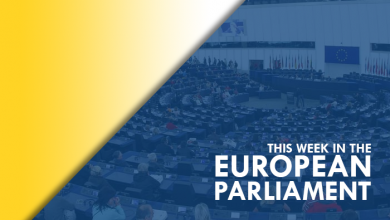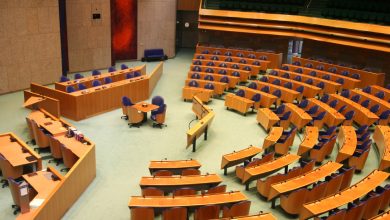Albanian Elections: All You Need To Know

On 25th June, Albanian citizens will elect their Parliament, the unilateral legislative organ of the country, for the next four-year term. With the country being a candidate EU Member State since 2014, European countries will be following these elections with interest.
The hope, both in Albania and in the EU, is that these could be the elections which finally kick-start the Balkan country’s progress towards compliance with membership criteria, provided that they are held in compliance with international standards – which has historically not been the case in the country.
Electoral System

There are 140 available seats, which will be awarded to a varying number of candidates from each of the 12 electoral constituencies, depending on their size and population density. The seats are allocated through a closed list, proportional representation system which firstly assigns seats to electoral coalitions and secondly to the single political parties within the coalitions through the Sainte-Laguë method.
In order to ensure that votes are not too fragmented, Albanian law also provides for an electoral threshold beyond which parties are barred from parliamentary representation: 3% for individual parties and 5% for coalitions.
Main Parties
While there are numerous parties running in all constituencies, the race will be mainly contended between the two  biggest parties in the country: the centre-left Socialist Party and the centre-right, liberal conservative Democratic Party. However, there are three further parties – two of which are splinters of the Socialists – which might also surpass the electoral threshold and gain seats in Parliament.
biggest parties in the country: the centre-left Socialist Party and the centre-right, liberal conservative Democratic Party. However, there are three further parties – two of which are splinters of the Socialists – which might also surpass the electoral threshold and gain seats in Parliament.
The Socialist Movement for Integration (LSI) has been since its creation in 2004 the most successful third party in the country. It ran during the 2013 elections together with the Socialist Party due to similar political stances, allowing the centre-left to reach a comfortable majority. However, the Socialist Party is now openly opposing LSI in order to avoid another co-government and be free to push through reforms without conditions, so another coalition is very unlikely.
LIBRA (also known as Equal List), was only founded last year, but it appears to have already gathered a sizeable amount of support from the younger demographics. Its centre-right politics are founded upon promoting equality and human rights, with the three main ideologies being social liberalism, civic nationalism, and pro-Europeanism.
The third, the Party for Justice, Integration and Unity, is instead a nationalistic, right-wing party focused on highlighting the struggle of ‘ethnic Albanians’ and opposing Albania’s entrance in the European Union.
Main Issues
Even though the two main parties are deeply divided from a political point of view, their manifesto pledges are actually quite similar. The two have even recently come together in a bid to reform the Albanian Constitution and the judicial vetting system, putting aside their differences for the sake of ensuring compliance with EU membership requirements. The three key issues which their manifestos have been concentrating on are economic development, tax reform and job creation.

The Socialist Party, if re-elected as a majority, has promised to focus on economic expansion and to increase wages for all, to decrease the taxes on wages, to decrease the public debt to 60%, and to reach a target of 5.5% in economic growth by the end of their mandate.
Similarly, the Democratic Party has promised to lower taxes for businesses, as well as introducing a 9% flat tax. Moreover, it has also pledged to give 100 million euro a year in subsidies for farmers and those working in the agricultural sector, and to drastically reduce reducing youth unemployment.
And of course, with both parties being pro-EU, another common key pledge is to accelerate the country’s integration in the European Union, in particular by pushing forward judicial reform measures. However, due to these measures being unproblematic and having a strong public support, they have not been at the centre of the campaigning pledges.
Polls
Current predictions give the Socialist Party ahead with 43% of the voting preferences, and the Democratic Party lagging behind with 36% of the votes. The rest of the preferences is split amongst all the other parties, in particular 12% for the Socialist Movement for Integration and 2.3% for Libra.







this! It’s nice to find out more about countries which are usually ignored!
Regards,
Chris